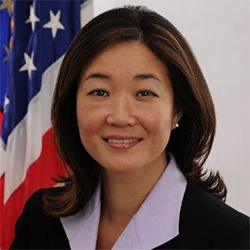“Investment in clinical trials is absolutely critical, especially in the context of rare diseases, and we need to double down and triple down on our investments,” Juliet K. Choi, president and CEO of the Asian & Pacific Islander American Health Forum, told attendees of the “Improving Rare Disease Diagnostics & Care” event sponsored by The Hill newspaper on May 13.
Trials must also be examined “though a lens of inclusion and communities of color,” Choi said. She noted that since 1992 the National Institutes of Health with its “incredible budget for clinical trials” has invested less than .02% in clinical trials focused on the Asian American Pacific Islander (AAPI) community.
“So, when it comes to investments, this is something we need to look at collectively” and advocate for in terms of research into rare diseases, including those that are especially prevalent in communities of color, Choi said. Rare diseases impact an estimated 30 million Americans, she added.
The research community must also address mistrust among some minority populations, suggested Dr. Bradford Wilson, cofounder of IndyGeneUS AI, a genomics company creating the world’s largest blockchain-encrypted repository of indigenous and diasporic African clinical and multi-omics data for disease prevention/detection, drug discovery and development, clinical disease management, and precision health equity.
Citing “historic exploitations” such as the Henrietta Lacks case, Wilson noted a tangible “trust issue” industry must confront. “There is a need for an increased level of transparency to establish trust and encourage greater participation” in research among all populations, Wilson said, adding that a wider patient population will produce stronger data and is “critical” to advancing patient treatments and cures.
Earlier in the event, Congressman Rodney Davis (R-Ill.) thanked clinical researchers, imploring them to “keep it up, keep doing what you are doing, and keep finding these cures.” Davis’ wife was diagnosed colon cancer nearly two decades ago and is alive today thanks at least in part to the work of clinical researchers, Davis said.
Author: Michael Causey



